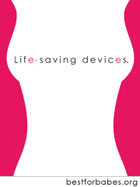Writing about the difficulty that hourly workers have finding the time and space to pump breast milk while at work, my colleague Jodi Kantor noted several years ago that while it was admirable that a former Massachusetts governor, Jane Swift, had breast-fed after returning to work, doing so was more complicated for women lower on the ladder — those who work behind fast-food counters, in catalog call centers, on factory floors or as waitresses and soldiers.
“That’s a great thing to do, but she had her own office and could set her own schedule,” one doctor is quoted as saying of Swift. “The one I want to know about is the lady cleaning her office.”
Well, that lady is now guaranteed the right to use a breast pump at work, the result of the health care bill passed by Congress last month. Section 4207 of the bill amends the Fair Labor Standards Act of 1938 to include the guarantee of “a reasonable break time for an employee to express breast milk for her nursing child for 1 year after the child’s birth each time such employee has need to express the milk,” for nonexempt hourly workers, and also the stipulation that this be done in “a place, other than a bathroom, that is shielded from view and free from intrusion from co-workers and the public.”
There are limits on this newly codified right. Companies of fewer than 50 employees are exempt if the employer can show that this would “impose an undue hardship,” and employees are not guaranteed pay for time spent expressing milk. There also does not seem to be a requirement that employees be given access to a place where the pumped milk can be stored. And it remains to be seen how the Department of Labor will define “a reasonable amount of time” to pump or an appropriate place to do so. It’s likely that the final regulations will be modeled on those in Oregon, thought to have a workable law. In Oregon, a the definition of a reasonable schedule is “a 30-minute rest period to express milk during each four-hour work period, or the major part of a four-hour work period, to be taken by the employee approximately in the middle of the work period.”
And a workable space? The United States Breastfeeding Committee, a nonprofit coalition of 40 organizations, has weighed in with some suggestions, many of which are already in use in the 24 states that have laws protecting breast-feeding workers:
Designated, permanent space, at least 4 by 6 feet with a chair, sink and electrical outlet.
Space designated with a sign or reserved on a calendar that rotates throughout the workspace between offices, conference rooms, clinic rooms, etc.
Temporary use of manager office space in fast-food restaurants, police departments or settings that lack other spaces with a locking door.
A curtained-off area that is nonaccessible to the public and meets privacy threshold because of clear, well-communicated policy with co-workers. This can even mean a chair behind a curtain in an employee-only bathroom lounge, if there is truly no other space available.
A designated space that serves employees from several employers, located in the employee-only areas of malls, airports and retail strips.
An agreement between work sites, where a breastfeeding employee can visit a neighboring business to access a designated space within.
Privacy panels to block the windows of work vehicles such as patrol cars or construction vehicles on the road.
Use of city or county buildings by public employees on route, such as police on patrol, bus drivers or meter readers.
A final question is whether employers will embrace the intent of the law or fight its specifics. It’s a good bet that rules like these would have helped Laura Walker, for instance, who filed a complaint with the Equal Opportunity Employment Commission after her employer, Red Lobster in Evanston, Ind., did not allow her to pump at work, despite a note from her nurse explaining it was a medical need. Instead, as Kantor described it, she was ridiculed. Her hours were reduced, and co-workers jiggled empty milk containers at her, joking they were for her. She settled for an undisclosed sum, and the company has said that they did try to assist her “multiple times.”
Whether the new rules would have protected LaNisa Allen is less clear. When she was was fired from the Totes/Isotoner company in Cincinnati last year, her employer did not argue that that she did not have the right to take a nursing break, but rather that she had not asked proper permission to do so. Is permission still necessary under the new law?
And, well meaning though they might be, these new regulations would probably not have saved the job of Marlene Warfield, a dental hygienist in Tacoma, Wash. When she brought her portable pump to the office, her boss told her to leave it home, and then donned “a Halloween costume consisting of a large silver box — his interpretation of a pump, perhaps — with a cutout labeled ‘insert breast here,’ ” Kantor wrote. Warfield quit, and the local human rights commission ruled that the dentist’s actions were not illegal.
By LISA BELKIN
The National Partnership for Women and Families suggests the following resources for those seeking information on the new law and suggestions of how to implement a lactation policy in their workplace:
To check on what categories of workers are covered, try http://www.dol.gov/compliance/guide/minwage.htm.
To contact the Department of Labor Wage and Hour Division to question specific provisions or report violations, the address is http://www.dol.gov/whd/contact_us.htm.
A primer on breast-feeding at work, including data on how it helps an employers bottom line, visit the Web site of the The United States Breastfeeding Committee.
And for information on low cost ways to buy or rent a breast pump, try the Food and Drug Administration.
Will this law make any difference at your workplace? Will it make any difference to you? If you work someplace with a laudable policy, or if you have personally talked your employer into doing better for nursing mothers, use the comments below to give others advice.
Subscribe to:
Post Comments (Atom)





















No comments:
Post a Comment